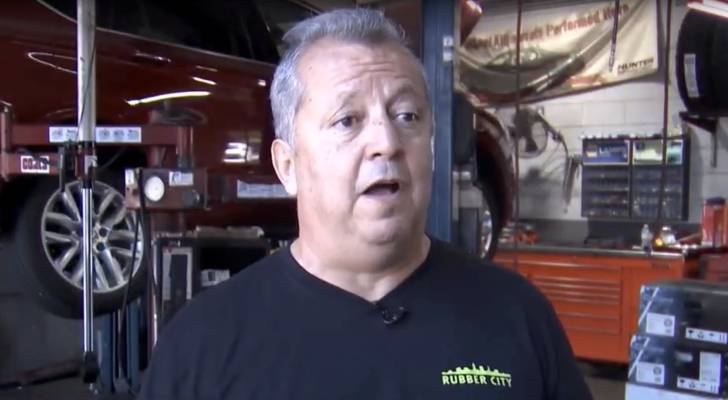
Sweeping tariffs imposed by President Donald Trump are sparking concern among Tampa Bay lawmakers and small business owners who say the financial impact will be felt by consumers.
As of April 30, a baseline 10% tariff has been placed on imported goods from most countries, along with a 25% tariff on steel and aluminum products, a 25% tariff on many foreign-made vehicles and auto parts — which were partly rolled back — and a minimum 145% tariff on Chinese goods. There may also be more to come, as Trump put a 90-day pause on previously announced reciprocal tariffs.
Don’t miss
- I’m 49 years old and have nothing saved for retirement — what should I do? Don’t panic. Here are 5 of the easiest ways you can catch up (and fast)
- Thanks to Jeff Bezos, you can now become a landlord for as little as $100 — and no, you don’t have to deal with tenants or fix freezers. Here’s how
- Gain potential quarterly income through this $1B private real estate fund — even if you’re not a millionaire. Here’s how to get started with as little as $10
Local business leaders in the Tampa Bay area believe these tariffs will raise the cost of doing business — and ultimately it’s the customers who will pay.
Here’s what businesses and legislators are saying on the topic.
How could this impact Tampa Bay residents?
In St. Petersburg, Florida, Rubber City Tire & Auto Repair CEO Cesar Grajales expects prices to be impacted, as tires and replacement parts become more expensive due to the tariffs.
“Everything is going to go up. All the parts are going to go up — wheels, everything,” he told News Channel 8 in a story published April 1. “There’s a lot of stuff we get imported that we have no choice on.”
He noted the last time Trump was in power and imposed tariffs that the price of imported tires spiked. When asked who would carry the burden of added costs, according to the broadcaster, Grajales and other business owners pointed to consumers.
“We’re going to pay for it up front, but we’re going to be forced to raise our prices,” Grajales said.
Read more: Want an extra $1,300,000 when you retire? Dave Ramsey says this 7-step plan ‘works every single time’ to kill debt, get rich in America — and that ‘anyone’ can do it
Tampa-area lawmakers are also expressing concern, warning the tariffs could increase prices on everyday items — from groceries to building suplies. Congresswoman Kathy Castor worries the tariffs will financially devastate Tampa Bay families and small businesses.
“All of that is going to be passed on to the hard-working people in our community,” Castor said of increased costs. “A lot of experts say that this is going to throw the country into a recession, and we just cannot afford that.”
Indeed, institutions such as J.P. Morgan have raised their estimate of the probability of a recession up to the 60% mark.
In addition to the sweeping tariffs mentioned above, Trump previously imposed levies on certain goods from Mexico and Canada, the country’s largest trading partners. Further tariffs could place even greater pressure on key sectors.
How to protect your personal and business finances
With U.S. trade drama likely to continue, both households and small businesses can take steps to soften the blow:
- Budget for higher prices: Bake price increases into your budget and adjust accordingly — cut other areas as needed.
- Focus on efficiency: When prices go higher, look for ways to spend more efficiently. Plan ahead for what’s needed and limit waste. Streamline operations if possible. Small changes add up.
- Buy local when possible: Supporting local products can reduce exposure to tariff-driven price hikes and support the regional economy.
- Review recurring expenses: Cutting back on subscriptions or non-essential services can help individuals. For businesses, consider shipping, software, or vendor contracts for savings.
- Diversify suppliers: Small businesses may want to consider sourcing from multiple suppliers to avoid relying too heavily on imported goods.
- Increase self-sufficiency: You may be able to find some savings if you can grow or create things on your own.
While the full scope of the tariffs’ impact remains to be seen, experts and local leaders agree that now is the time to prepare. Even if the tariffs are revised later, the immediate financial hit could have lasting effects on families and businesses.
What to read next
- Don’t have the cash to pay Uncle Sam in 2025? You may already be eligible for a ‘streamlined’ handshake with the IRS — here’s how it works and how it can potentially save you thousands
- Here are 5 ‘must have’ items that Americans (almost) always overpay for — and very quickly regret. How many are hurting you?
- Robert Kiyosaki warns of a ‘Greater Depression’ coming to the US — with millions of Americans going poor. But he says these 2 ‘easy-money’ assets will bring in great wealth. How to get in now
This article provides information only and should not be construed as advice. It is provided without warranty of any kind.